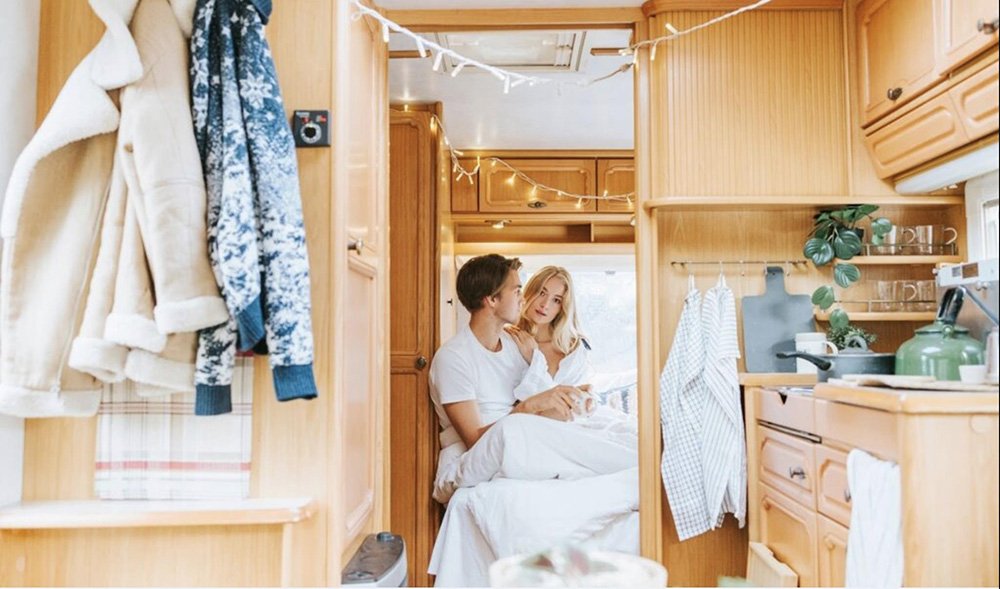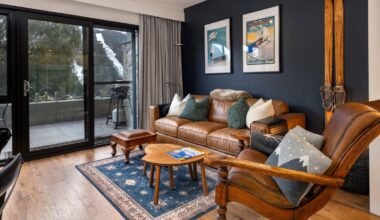Key Takeaways:
- Motorhome ownership offers flexible, long-term travel with home-style comfort
- Initial costs, maintenance, and storage are often underestimated by new owners
- Location impacts both purchase options and ease of servicing over time
- Long-term lifestyle fit matters more than short-term excitement or trends
There’s something about the idea of owning a motorhome that captures the imagination. Waking up in a quiet bush camp one week and pulling into a coastal town the next has become more than a daydream for many Australians — it’s a lifestyle shift that’s gaining momentum. Whether you’re chasing freedom in retirement, seeking a cheaper way to travel with the kids, or just want to escape the packed holiday parks, having your own motorhome opens up a new way to experience the country.
But as with any big-ticket purchase, the appeal often sits right alongside a long list of practical considerations. Before you commit, it’s worth weighing up both the rewards and the responsibilities that come with taking your accommodation on the road.
The lifestyle advantages of owning your own motorhome
If you’ve ever taken a road trip and hated the hassle of unpacking in a different motel each night, owning a motorhome probably sounds like a dream. And in many ways, it is. One of the biggest drawcards is the sense of flexibility. You can change plans on a whim, skip expensive caravan parks, or pull over at a quiet rest stop when the weather changes. You’re not locked into check-in times or restricted by what’s available online. The road becomes your itinerary.
Having your own setup also means being able to travel more often without blowing your budget. Once the initial investment is made, there are fewer ongoing travel costs — no flights, no hotel fees, no car hire. Families can escape for weekends without needing to plan months ahead, and retirees can embrace long-term travel without worrying about where they’ll sleep.
Beyond convenience, there’s also comfort. You can customise the layout, bring your own bedding, and pack what you like without squeezing it all into suitcases. For travellers with accessibility needs or specific health conditions, this control over your living space can make a huge difference.
Then there’s the access it gives you to lesser-known spots. Australia is packed with incredible regions that don’t have airports or well-developed tourist infrastructure. With a motorhome, you can explore the Eyre Peninsula, stop in tiny Victorian gold rush towns, or park up near remote beaches in WA — all without relying on accommodation that might not even exist.
What many don’t consider before making a purchase
The romantic side of motorhome ownership often takes centre stage, but it’s only half the picture. The other half consists of costs, commitments, and a few unexpected frustrations that catch many new owners off guard.
To start, the upfront expense is significant. Even second-hand models can carry a price tag higher than some houses in regional towns. Finance options are available, but repayments can bite into the savings you’d otherwise enjoy from ditching hotels. Then there’s insurance, registration, and often a specialised licence depending on the size of the vehicle.
Maintenance is another area where costs and time can stack up. Motorhomes are a combination of vehicle and home, meaning double the systems that can go wrong. Plumbing issues, fridge repairs, flat tyres, battery problems — they’re all part of the reality. Unlike a standard car, you can’t always rely on your local mechanic to know how to fix things, and some repairs are unique to these types of vehicles.
Storage can become a logistical headache, too. If you don’t have space at home, you’ll need to rent a secure spot, which can be pricey depending on your location. Leaving it parked on the street isn’t always allowed, and even if it is, you’re exposing it to the elements, potential theft, or damage.
And then there’s the learning curve. Driving a larger vehicle, understanding weight distribution, using solar power, managing water tanks — none of it is difficult, but it’s not as intuitive as people think. It can take months to feel truly confident on the road, especially if you’re moving from a standard car or van.
How the local market affects your decision
Location plays a bigger role in motorhome ownership than most people realise. Where you live influences how easy it is to buy, maintain, and even park your vehicle. Coastal cities tend to have stronger markets with plenty of dealers and second-hand options, but they also come with higher prices and stiffer competition for storage. In contrast, regional areas might offer better deals but fewer servicing options or replacement parts nearby.
If you’re comparing models or looking for servicing options, having access to RV motorhomes Sydney dealerships can help you see what’s practical in an urban setting. Larger cities often have showrooms where you can test layouts, talk to other owners, and understand what ownership really involves before committing. On the other hand, buying locally might mean paying more due to the added convenience and market demand. For many, it comes down to balancing cost with accessibility and ongoing support.
Another point worth noting is how geography affects your travel routes. City-based owners often face long drives just to reach the open road, while regional travellers are already on it. That difference can influence how often you use your motorhome, which in turn affects whether the investment truly makes sense. Thinking about where you’ll store, service, and start each journey from can be just as important as the purchase itself.
Resale value and lifestyle alignment over time
Once the excitement of a new purchase fades, the long-term picture begins to matter more. Some people fall completely in love with the lifestyle and keep their motorhome for decades, while others discover that the novelty wears off after a few years. The reality is that resale value can fluctuate depending on the model, age, and overall condition. Unlike cars, depreciation can be slower if you’ve kept the vehicle in good shape and serviced it regularly.
Market demand also plays a role. When fuel prices rise, some owners look to offload larger models, while smaller, more efficient designs become harder to find. Trends in remote work and flexible living have also shifted demand, especially among younger travellers looking for portable housing options rather than pure leisure vehicles.
Lifestyle changes often dictate the outcome more than economics. A growing family, health considerations, or a shift back into full-time work can all affect how frequently the motorhome leaves the driveway. For retirees, the desire for a base home or smaller travel footprint can lead to selling up or swapping for a lighter setup like a campervan.
The most satisfied owners are usually those who viewed their purchase as part of a longer journey rather than a one-off holiday fix. They understand that the real value lies not just in kilometres travelled, but in how comfortably the motorhome fits their ongoing lifestyle.
It’s not for everyone, but it can be worth it
Motorhome ownership can offer an incredible way to see Australia, but it’s not a one-size-fits-all decision. The freedom, comfort, and convenience are undeniably appealing, especially for those ready to embrace the open road as part of their regular lifestyle. At the same time, the commitment — financial and practical — is something that deserves serious thought.
Some people find that owning a motorhome changes how they travel forever. Others realise they prefer the flexibility of hiring or only need a vehicle once or twice a year. There’s no wrong answer, but rushing in without considering the full picture often leads to regret. If you take the time to understand your travel habits, lifestyle goals, and what long-term ownership actually looks like, you’ll be in a much better position to decide whether the road is calling — or just passing by.



